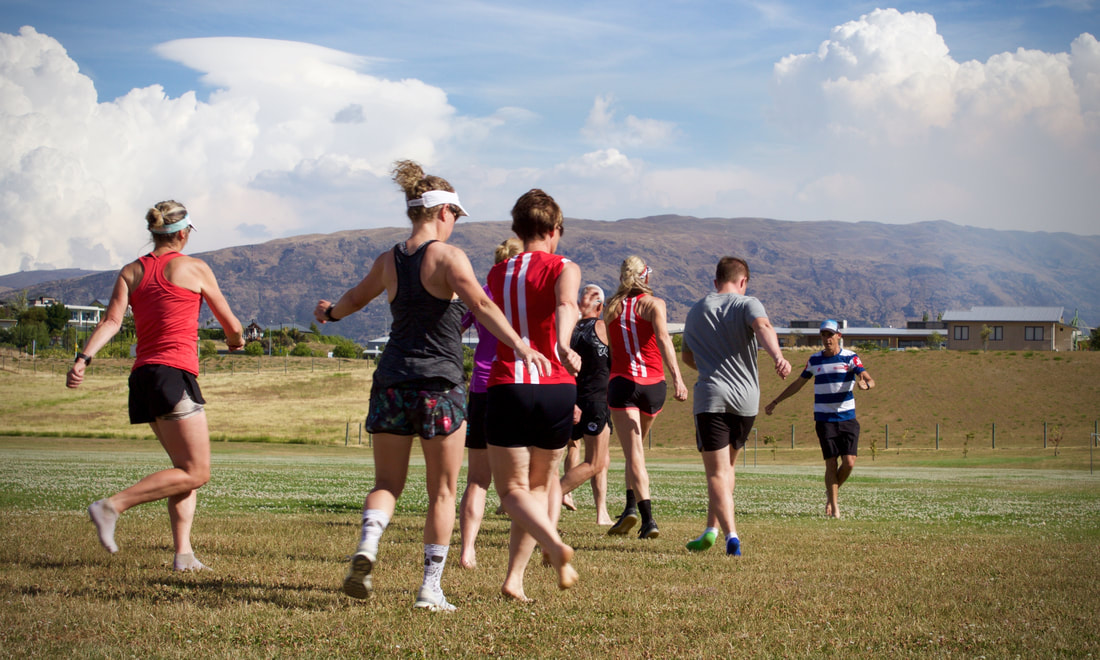As the summer season rolls on we are starting to see more and more keen Kiwis out on the trails working to get fitter and faster. Whether training for a specific event, or exercising to get in / stay in shape, summer is a busy time for athletes around the country. Often, we see individuals who have – for one reason or another – taken it fairly easy over winter and the sudden addition of training miles can be an abrupt change for the body to deal with. Did someone say injury?
Of course, summer isn’t the only time people get injured and those individuals who go from no training to too much training also aren’t the only ones to face injury. We’re asked questions year-round about niggles and aches, dysfunctional running biomechanics and everything in between. We’ve previously shared a handful of articles discussing specific regions of the body that commonly display niggles and symptoms, and our suggestions for healing and improving function. You can find those here:
It is our firm opinion that injuries should be dealt with from a proactive rather than reactive point of view. We’re also at terms with the fact that not everyone thinks this way and so many of the people we help are already in an injured or 'niggly' state. So what to do about it? The short answer is that you absolutely need to build a foundation of flexibility, mobility, strength and technique (not necessarily in hierarchical order) before adding any serious volume to your training.
Below are our most basic suggestions for moving away from niggles and preventing them in the first place:
Daily mobility practice
All of our athletes are given – and expected to use for a minimum of 10 minutes per day – The 10 Minute Mobility Guide. This pocket-sized manual offers a range of progressive, out-of-the-ordinary stretches and mobility exercises specific to preventing injury and promoting performance in modern athletes.
Cross-training
Especially important when transitioning from little or no exercise to a lot! Don’t try to go from zero runs per week to five runs per week. Weave in at least one day per week of something different, be it your weekly social tennis or football, a gym session, boot camp, walking with the kids or going for a swim. Our favourite picks are yoga and pilates, and we will often recommend to our athletes that they do either a yoga or pilates session weekly, as well as another cross-training session from the list above.
Check your running technique
Or better yet, get someone who knows what they’re talking about to have a look! Funnily enough, running isn’t always as simple as putting one foot in front of the other. There are many reasons for this, and this modern way of life has a lot to do with our commonly altered biomechanics (too much sitting, shoes that don’t agree with human anatomy, smart phones and lack of sleep are all contributing factors. James Kuegler Coaching offers numerous workshops around the country for runners of all ages, abilities and incomes.
Follow an effective training programme
Applying just enough training load, at just the right ramp rate – enough to build quick and steady progress without causing injury – is a science and an art. Every person is unique in their abilities and requirements, and everyone has different circumstances. Contrasting these things to produce a training programme that works for you is highly important in avoiding injury as well as achieving your greatest success! James Kuegler Coaching can absolutely help you with this.
Utilise a progressive model of healthcare
Step out of the broken down Western medical paradigm of reactive sickness care, and jump into a progressive, proactive approach to health and wellness. Find yourself a local guru, chiropractor, trainer, physical therapist, massage therapist or similar who is interested in helping you to stay injury-free rather than just band-aiding your symptoms after they show up. Check out the article here for more thoughts around the idea of proactive health care.
Nutrition
Add to your list of progressive, proactive health care practitioners a quality holistic nutritionist! You may or may not be aware that the way you are eating is undoubtedly contributing to your aches, pains, likelihood of injury and ability to heal…. Or lack thereof! We’ve all heard that food is medicine, and it is absolutely true. The foods you eat will affect your coordination, how inflamed or sore you are and how much capacity you have to heal and regenerate. Are the foods you eat promoting injury or preventing it? Our resident Exercise Nutrition Coach might be exactly who you need to talk to.
It is our firm opinion that injuries should be dealt with from a proactive rather than reactive point of view. We’re also at terms with the fact that not everyone thinks this way and so many of the people we help are already in an injured or 'niggly' state. So what to do about it? The short answer is that you absolutely need to build a foundation of flexibility, mobility, strength and technique (not necessarily in hierarchical order) before adding any serious volume to your training.
Below are our most basic suggestions for moving away from niggles and preventing them in the first place:
Daily mobility practice
All of our athletes are given – and expected to use for a minimum of 10 minutes per day – The 10 Minute Mobility Guide. This pocket-sized manual offers a range of progressive, out-of-the-ordinary stretches and mobility exercises specific to preventing injury and promoting performance in modern athletes.
Cross-training
Especially important when transitioning from little or no exercise to a lot! Don’t try to go from zero runs per week to five runs per week. Weave in at least one day per week of something different, be it your weekly social tennis or football, a gym session, boot camp, walking with the kids or going for a swim. Our favourite picks are yoga and pilates, and we will often recommend to our athletes that they do either a yoga or pilates session weekly, as well as another cross-training session from the list above.
Check your running technique
Or better yet, get someone who knows what they’re talking about to have a look! Funnily enough, running isn’t always as simple as putting one foot in front of the other. There are many reasons for this, and this modern way of life has a lot to do with our commonly altered biomechanics (too much sitting, shoes that don’t agree with human anatomy, smart phones and lack of sleep are all contributing factors. James Kuegler Coaching offers numerous workshops around the country for runners of all ages, abilities and incomes.
Follow an effective training programme
Applying just enough training load, at just the right ramp rate – enough to build quick and steady progress without causing injury – is a science and an art. Every person is unique in their abilities and requirements, and everyone has different circumstances. Contrasting these things to produce a training programme that works for you is highly important in avoiding injury as well as achieving your greatest success! James Kuegler Coaching can absolutely help you with this.
Utilise a progressive model of healthcare
Step out of the broken down Western medical paradigm of reactive sickness care, and jump into a progressive, proactive approach to health and wellness. Find yourself a local guru, chiropractor, trainer, physical therapist, massage therapist or similar who is interested in helping you to stay injury-free rather than just band-aiding your symptoms after they show up. Check out the article here for more thoughts around the idea of proactive health care.
Nutrition
Add to your list of progressive, proactive health care practitioners a quality holistic nutritionist! You may or may not be aware that the way you are eating is undoubtedly contributing to your aches, pains, likelihood of injury and ability to heal…. Or lack thereof! We’ve all heard that food is medicine, and it is absolutely true. The foods you eat will affect your coordination, how inflamed or sore you are and how much capacity you have to heal and regenerate. Are the foods you eat promoting injury or preventing it? Our resident Exercise Nutrition Coach might be exactly who you need to talk to.




